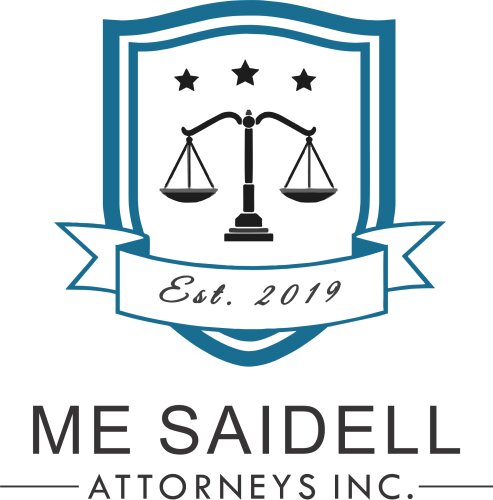Best Corporate & Commercial Lawyers in South Africa
Share your needs with us, get contacted by law firms.
Free. Takes 2 min.
Or refine your search by selecting a city:
List of the best lawyers in South Africa
South Africa Corporate & Commercial Legal Questions answered by Lawyers
Browse our 1 legal question about Corporate & Commercial in South Africa and read the lawyer answers, or ask your own questions for free.
- Vehicle breakdown
- My vehicle broke down and I took it to a [company removed] dealership. The initial fault was an oil leak; after investigation they topped up the oil and started the vehicle. After a while they heard a knocking sound and some other noises, so they switched off the engine and... Read more →
-
Lawyer answer by mohammad mehdi ghanbari
Hello, Thank you for reaching out. I hope you are well. If the dealership caused additional damage to your vehicle, such as a connecting rod protrusion, due to negligence during repairs, they are generally legally responsible for fixing the new...
Read full answer
South Africa Corporate & Commercial Legal Articles
Browse our 1 legal article about Corporate & Commercial in South Africa written by expert lawyers.
- B-BBEE Compliance for International Firms in South Africa
- B-BBEE is a commercial imperative for international firms seeking to participate in the South African economy, particularly for government tenders and large-scale private supply chains. Multinationals can bypass the requirement to sell equity to local partners by utilizing Equity Equivalence Investment Programs (EEIP) approved by the government. Fronting, or misrepresenting... Read more →
About Corporate & Commercial Law in South Africa
Corporate and Commercial Law in South Africa covers a wide range of legal matters that affect businesses, companies, entrepreneurs, and investors. This field governs how companies are created, operate, merge, dissolve, and otherwise conduct business within the country. It involves everything from the drafting of founding documents and commercial contracts to compliance with regulations and legislative frameworks. Corporate & Commercial Law is essential for ensuring that businesses operate within the legal boundaries and that the rights and obligations of all parties are protected.
Why You May Need a Lawyer
Individuals and businesses may need a corporate and commercial lawyer for many reasons. Common situations include:
- Starting a new business or registering a company
- Drafting, reviewing, or negotiating contracts such as shareholder agreements, partnership agreements, and commercial leases
- Advising on mergers, acquisitions, and restructuring
- Ensuring compliance with legislation, including the Companies Act and consumer protection laws
- Handling disputes between shareholders, directors, or business partners
- Dealing with insolvency, liquidation, or business rescue proceedings
- Protecting intellectual property, such as patents, trademarks, and copyrights
- Drafting policies for corporate governance and regulatory compliance
Legal advice helps prevent costly mistakes, ensures proper documentation, reduces risks, and supports the long-term success and sustainability of a business.
Local Laws Overview
Several important laws and regulations shape the corporate and commercial landscape in South Africa:
- Companies Act 71 of 2008: Governs the registration, operation, and dissolution of companies. It deals with director duties, shareholder rights, public and private company requirements, and more.
- Close Corporations Act 69 of 1984: Applies to close corporations (a popular small business structure), although new CCs can no longer be registered.
- Consumer Protection Act 68 of 2008: Lays out the rights of consumers and obligations for suppliers of goods and services, aiming to promote fairness in business transactions.
- Competition Act 89 of 1998: Prevents anti-competitive practices, regulates mergers, and promotes healthy competition.
- Broad-Based Black Economic Empowerment (B-BBEE) Act: Encourages transformation and equitable participation by previously disadvantaged groups in the economy.
- Labour Relations Act 66 of 1995: Sets the framework for fair labor practices, employment contracts, and dispute resolution between employers and employees.
- Intellectual Property Laws: Protect inventions, brands, and creative works under the relevant statutes and common law.
South Africa's legal framework is robust, so navigating it successfully often requires professional guidance, especially when interpreting complex legislation or handling disputes.
Frequently Asked Questions
What is the difference between a private and a public company in South Africa?
A private company is typically owned by a small group of people and cannot offer shares to the public, while a public company may list shares on the stock exchange and invite the public to invest. Each has distinct governance and disclosure requirements under the Companies Act.
Do I need a lawyer to register a company?
While it is possible to register a company yourself using the Companies and Intellectual Property Commission (CIPC), legal guidance is recommended. A lawyer ensures all documents are in order, complies with current regulations, and advises on the best structure for your business needs.
What documents do I need to set up a company?
Key documents include a Memorandum of Incorporation (MOI), registration forms, identification documents for directors and shareholders, and proof of address. Additional documents might be needed, depending on the company's nature and structure.
How important are shareholder agreements?
Shareholder agreements are essential for clarifying the rights and responsibilities of each shareholder, decision-making processes, share transfers, dispute resolution mechanisms, and other critical issues. They help prevent conflicts and protect all parties' interests.
What are my options if my business is facing financial difficulty?
Options may include restructuring debt, entering into business rescue proceedings, or, as a last resort, voluntary liquidation. A commercial lawyer will help you assess the situation, consider creditors' rights, and advise on the best course of action.
What are directors' duties under South African law?
Directors must act in the company’s best interests, avoid conflicts of interest, exercise care and skill, comply with legal requirements, and maintain financial oversight. Breaches of these duties can result in personal liability.
How do I protect my intellectual property?
Protection involves registering trademarks, patents, or designs with the CIPC, and ensuring contracts with employees or partners include IP ownership clauses. Copyright protection is automatic upon creation of an original work but may be registered for added security.
Can a foreigner own and operate a company in South Africa?
Yes, foreigners can own and operate businesses in South Africa, though certain sectors may have investment restrictions or require local partnerships. Foreign directors must comply with visa and residency requirements.
When do I need competition law advice?
If you are considering a merger, acquisition, or any agreement that may affect market competition, or if you face an investigation by the Competition Commission, it is crucial to seek legal advice to ensure compliance and manage risk.
How do I choose the right lawyer for my business?
Look for a lawyer with expertise in corporate and commercial matters, a good track record, clear communication, and a practical understanding of your industry. Consider recommendations and the lawyer’s approach to client relationships.
Additional Resources
If you need more information or support, the following organizations can be helpful:
- Companies and Intellectual Property Commission (CIPC): Responsible for company registration and intellectual property matters
- Competition Commission of South Africa: Deals with anti-competitive behavior and market inquiries
- Department of Trade, Industry and Competition (DTIC): Provides policy guidance and support for businesses
- South African Institute of Chartered Accountants (SAICA): Useful for financial and regulatory advice
- Business chambers and industry associations: Offer guidance on sector-specific issues
- Law Society of South Africa (LSSA): Provides access to qualified attorneys and legal resources
Next Steps
If you believe you need legal assistance in the field of Corporate & Commercial Law:
- Gather relevant documents such as company registration paperwork, contracts, correspondence, and financial statements
- Clearly define the issue or questions you need help with
- Consult with a qualified corporate and commercial lawyer for advice tailored to your situation
- Ask about the legal process, estimated costs, and timelines before proceeding
- Keep records of all advice and agreements for future reference
Taking prompt legal advice can save time, money, and avoid potential legal challenges. The sooner you act, the better your chances of reaching a favorable outcome for your business.
Lawzana helps you find the best lawyers and law firms in South Africa through a curated and pre-screened list of qualified legal professionals. Our platform offers rankings and detailed profiles of attorneys and law firms, allowing you to compare based on practice areas, including Corporate & Commercial, experience, and client feedback.
Each profile includes a description of the firm's areas of practice, client reviews, team members and partners, year of establishment, spoken languages, office locations, contact information, social media presence, and any published articles or resources. Most firms on our platform speak English and are experienced in both local and international legal matters.
Get a quote from top-rated law firms in South Africa — quickly, securely, and without unnecessary hassle.
Disclaimer:
The information provided on this page is for general informational purposes only and does not constitute legal advice. While we strive to ensure the accuracy and relevance of the content, legal information may change over time, and interpretations of the law can vary. You should always consult with a qualified legal professional for advice specific to your situation.
We disclaim all liability for actions taken or not taken based on the content of this page. If you believe any information is incorrect or outdated, please contact us, and we will review and update it where appropriate.
Browse corporate & commercial law firms by service in South Africa
South Africa Attorneys in related practice areas.
Browse corporate & commercial law firms by city in South Africa
Refine your search by selecting a city.
















